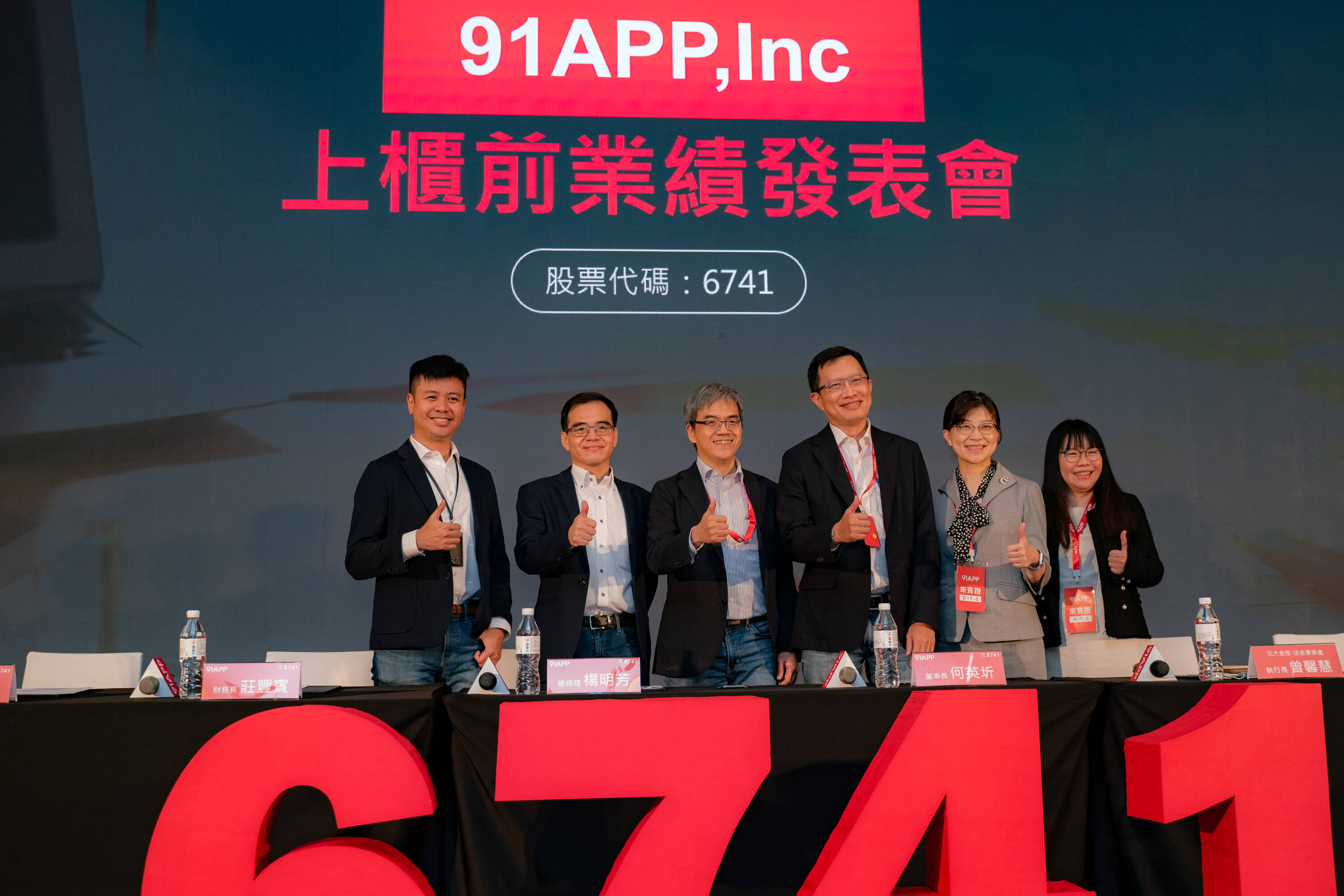2021 has been an extraordinary year for the Taiwan startup ecosystem. In March and June of this year, Taiwan welcomed two newly-minted unicorns that have heightened Taiwan’s internationally competitive edge. Appier, an AI tech company, officially went public on the Tokyo Stock Exchange on March 30th and became Japan’s highest valued IPO of the last accounting year. However, while Appier went public in foreign markets, SaaS software company 91APP chose to IPO in Taiwan. With growing investor confidence, 91APP’s valuation reached nearly $1.7B and a P/E ratio of 192 on July 21st, two months after its IPO. This has broken the ingrained myth that only hardware companies can succeed in Taiwan capital markets and opened new doors for future Taiwan startups.
91APP Found the Key to Success: Digital and Retail Integration
91APP is Taiwan’s first OMO (Online-merge-Offline) retail software service company that operates in Taiwan, Hong Kong, and Malaysia. It now serves more than 10,000 clients, which includes international brands like GUERLAIN, MAKE UP FOR EVER, Timberland, The North Face, Levi’s, and Puma.

For the past years, 91APP has developed advanced SaaS technology and E-commerce intermediary services that enable retail brands to break into online markets with greater ease. With its unique and original one-stop digitization solution, 91APP can develop and manage E-commerce platforms and mobile apps for their clients while also integrating OMO marketing strategies within just short periods of time. In addition, 91APP’s technology backbone equips brand partners with more effective brand management and data analytics tools that help them increase profit margins.
While there are many companies that operate in this space, 91APP’s technological know-how and one-stop digitization solution prove insurmountable, giving them a global strategic advantage. Some have equated 91APP as the Shopify of Asia. However, this may not be a fair comparison, given the broader scope of digital services that 91APP provides to their brand partners.
In terms of business management, 91APP has been spectacular all around. Since 2016, 91APP’s GMV and total revenue have grown yearly, becoming profitable as early as 2017. For 2020 alone, 91APP achieved a GMV of nearly $500M and total revenue of $31M. Going forward, as their clients’ scale of operation continues to rapidly grow, so will 91APP’s future profitability.
Even amidst a pandemic, 91APP formally IPOs

Although Taiwan was able to control the spread of COVID-19 in 2020 and maintain stable market conditions, many retailers began to realize the importance of digital transformation. As a result, 91APP grew tremendously with the pandemic as a stimulating force and increased revenue to record highs in 2020 by creating effective solutions to help its clients mitigate the impacts of the pandemic.
With years of crafting their services, constantly innovating their technologies, and having the timely occurrence of a pandemic that necessitated digital transformation, 91APP has triumphed with an IPO on May 25th. As the first SaaS company to ever become public in Taiwan, 91APP performed spectacularly on their first trading day, reaching a valuation of over $700M. Within just a month, 91APP’s valuation soared to over $1.3B to become the first Taiwanese homegrown SaaS unicorn, unlocking the potential for other future unicorns in Taiwan capital markets.
New Possibilities for Taiwan’s Startups and Capital Markets
91APP’s success carries great significance for Taiwan capital markets and the startup community. First, this reflects the international competitiveness and increased confidence of Taiwan capital markets in its ability to provide high-quality valuations of startups. Prior to 91APP’s IPO, it was widely assumed that Taiwan capital markets specialized in hardware manufacturers like TSMC and MediaTek and lacked confidence in investing in software or other innovative industries. However, 91APP’s hit IPO has broken down this misconception. Also, the success story of 91APP has drawn more and more foreign investors’ attention to Taiwan markets.
Second, 91APP has given greater hope to other Taiwan-based startup companies that are looking for an eventual IPO. No longer do companies have to rely on the slim opportunity of pursuing foreign markets; startup companies in Taiwan now have greater confidence in staying in Taiwan. On the flip side, foreign companies looking to enter Asian markets can now consider Taiwan alongside Japan and Hong Kong for IPO locations.
Finally, regarding the overall Taiwan market, Taiwanese semiconductor technology is widely recognized by the international business world. However, people are now asking, “What industry in Taiwan can likely take over its semiconductor success?” Since Taiwan is home to a growing number of high-quality software talents, there would gradually be more software startups looking to take the big stage like 91APP in the foreseeable future. Thus, it’s becoming increasingly clear, Taiwan’s software industry is undoubtedly on the rise and growing in competitiveness and strength.

